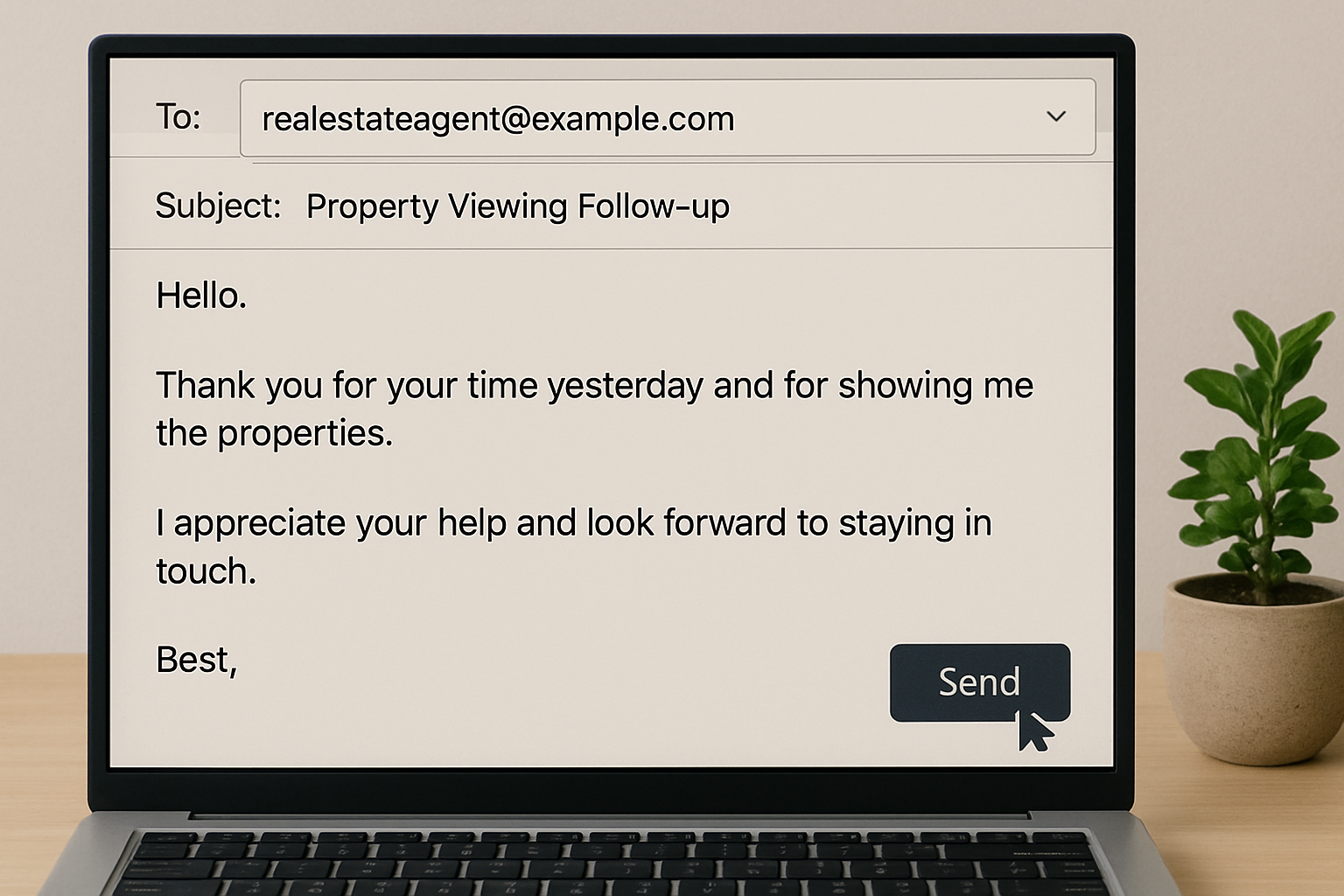Real estate investment is not merely a means of pursuing short-term profits, but can be viewed as a way of building sustainable assets for the future. I emphasize real estate investment as a means of long-term asset building with a philosophy and vision, rather than as a means of pursuing short-term profits. In this article, I will explain in an easy-to-understand manner for beginners why real estate investment is important, where to start, and what risks are involved, while taking this perspective into account. We support readers who are considering future asset building as businesspersons so that they can embark on planned and socially meaningful real estate investment from a long-term perspective.
Significance and Merits of Starting Real Estate Investment
First, we will summarize the "why" of real estate investment, as well as its significance and merits. Unlike investing in stocks, real estate investment is attractive because you can expect a stable income from monthly rental income. Since it is less susceptible to short-term price fluctuations in the market and easier to obtain stable cash flow over the long term, it has the advantage of being an easy way to build assets over the long term. In addition, by utilizing loans (borrowing), leverage can be used to efficiently expand assets even with a small amount of capital on hand. The following is a summary of the main advantages
-
Secure a stable additional income: Renting a house provides an income gain in the form of monthly rent, which can be used as a substitute for a future pension or as a stable source of funds for your daily life. Together with the income from your main job, it can be a strong pillar of support for your family finances.
-
Increased asset value and leverage effect: Real estate is considered to be an asset that is resistant to inflation, as its asset value tends to increase during periods of rising prices (inflation). In addition, loans from financial institutions can be used to acquire high value assets while reducing personal funds, thereby increasing the speed of asset building.
-
Tax benefits: Income from real estate investment is allowed to be recorded as expenses. By recording depreciation, loan interest, and management fees as expenses, taxable income can be reduced and income and inhabitant taxes can be reduced. In addition, loans often come with group credit life insurance, which can be a great way to leave assets to family members as a substitute for life insurance in the event of an emergency.
-
Contribution to society: In addition to simply earning your own income, supplying quality housing is also socially meaningful. If you renovate and provide aging properties, you can improve the local living environment and contribute to solving social issues such as utilizing vacant houses and solving the housing shortage.
However, in order to succeed in real estate investment, it is important to have a clear idea of why you are investing in real estate and your goals, rather than focusing on short-term gains. By investing in real estate with a vision of where you want to be in the future, you will be able to make consistent decisions on a day-to-day basis, which will enable you to manage your property over the long term without any blurring. As a result, you will be able to grow your assets sustainably while feeling a sense of fulfillment and social significance that goes beyond mere money-making.
Basic Knowledge of Real Estate Investment: Important Terms Beginners Should Keep in Mind
Understanding terminology is essential when beginning real estate investment. Here is a brief explanation of the basic terms that beginners should at least keep in mind.
-
Yield: The ratio of the annual return on an investment to the amount invested. For example, if the property is priced at 20 million yen and the annual rental income is 1 million yen, the yield is 5%. There are two types of yields: surface yield (gross yield) and real yield (net yield). The surface yield is simply the rent income divided by the price, while the real yield is calculated by subtracting expenses such as management fees, repair costs, and property taxes from the surface yield. When selecting a property, it is important not to be misled by the high surface yield alone, but to compare and consider the real yield including expenses. By looking at the real yield, you can grasp the realistic earning capacity of the property.
-
Cash Flow: This refers to the flow of cash income and expenditure. In real estate investment, it refers to the cash balance remaining after deducting all expenses such as loan repayments, management fees, and taxes from the monthly rental income, and is an important indicator to judge the success or failure of an investment. The ability to maintain a positive cash flow (surplus) on an ongoing basis is a measure of sound rental management, and if the cash flow continues to be negative (deficit), a review is necessary. For beginners, it is especially important to plan your income and expenditures with an emphasis on how much cash is left over each month.
-
Personal funds: This is the amount of cash that you will provide for the purchase of real estate. Generally, the amount to be allocated to personal funds is a portion of the property purchase price (down payment) plus expenses (registration fees, brokerage commissions, fire insurance premiums, etc.). Self-financing in real estate investment refers to purchase funds prepared outside of loans, and is generally estimated to be about 20% of the property price. For example, for a 30 million yen property, the estimated amount of personal funds is around 6 million yen. However, it is not impossible to obtain a loan for the entire amount with no personal funds. However, in this case, the risk of cash flow being squeezed increases as the monthly repayment burden increases. Beginners are advised to make a reasonable self-financing plan and limit the amount of loan to a comfortable level.
-
Loan: Funds (financing) borrowed from a financial institution for the purchase of real estate. The funds are procured in the form of a mortgage or apartment loan and are repaid over a long period of time. Loans make it possible to acquire property with little personal funds and, as mentioned earlier, allow for leveraged investment, but they also come with monthly repayment obligations and interest burdens. There are two interest rate types: floating and fixed. Floating-rate loans carry the risk of higher repayments due to future increases in interest rates. Beginners should pay attention to interest rate trends and choose a loan type and term according to their own risk tolerance. With an appropriate loan amount and repayment plan, a loan can be a powerful asset-building tool.
-
Management: This term refers to all operations related to the maintenance and rental management of real estate. After purchasing a property, the owner is responsible for various management tasks, such as recruiting tenants, processing contracts, collecting rent, handling complaints, cleaning, inspecting, and repairing the building, and dealing with tenants when they move out. There are two types of management: self-management, in which the owner manages the property on his/her own, and outsourced management, in which a professional property management company manages the property. Self-management is cost-effective, but requires time and expertise, which can be a hurdle for beginners. On the other hand, outsourcing to a property management company reduces the workload but incurs a commission (management fee). As discussed below, working with a reliable management company is an important point for long-term stable management.
-
Vacancy Risk: This is the risk of a rental property becoming vacant without tenants. This is one of the most important risks to be aware of in real estate investment, because without tenants, rental income will cease to accrue. If the vacancy is prolonged, only loan repayments and fixed cost payments will remain, and the income and expenditure will deteriorate significantly. To reduce vacancy risk, property selection and area selection are important (see below for details). Another effective measure is to create an environment that is easy to attract tenants by setting appropriate rents and making the property attractive (capital investment, renovation, and careful management).
By understanding the basic terms mentioned above, it will be easier to grasp the overall picture of real estate investment. It is important to check any terminology that you do not understand and to avoid ambiguity. A solid understanding of the basics is the first step to success.
Risks and Cautions for Real Estate Investment
Although real estate investment has many merits, there are naturally risks involved. It is important for beginners to understand the possible risks in advance and take appropriate measures. The following is a summary of the main risks assumed in real estate investment.
-
Vacancy risk: As mentioned above, this is the risk that the property will become vacant due to lack of tenants. Even if no rental income is received, expenses such as loan repayments, management fees, and property taxes will continue, resulting in a negative balance. This is the risk of greatest concern in real estate investment, and efforts should be made to reduce this risk as much as possible by conducting market research and setting appropriate rents before purchasing properties.
-
Rent delinquency risk: Even when there are tenants, there is the risk of nonpayment of rent by tenants. This is an unexpected and painful situation because the obligation to pay loans and management fees continues even if rent income ceases. Countermeasures include rigorous screening when recruiting tenants and using a rent guarantee service provided by a guarantee company to prepare for the eventuality of nonpayment.
-
Interest Rate Fluctuation Risk: This is the risk that the borrowing interest rate will rise in the future. If you have a variable interest rate loan, the monthly repayment amount will increase when interest rates rise, putting pressure on your cash flow. Countermeasures include taking out a fixed-rate loan while interest rates are low or using prepayment to reduce the principal. Keep an eye on interest rates and economic trends on a regular basis, and prepare a repayment plan that can withstand an unexpected rise in interest rates.
-
Repair and equipment renewal risk: This is the risk of unexpected repair costs due to aging of the building or equipment failure. Regular expenses are required to maintain the property, such as water heater and air conditioner breakdowns, leak repairs, exterior wall painting, and major repairs. It is important to pool reserve funds for these unplanned expenses. It is a good idea to thoroughly check the condition of the building prior to purchase, and to establish a long-term repair plan that anticipates future repair costs.
-
Liquidity Risk: Real estate, like stocks, is not readily convertible to cash (low liquidity), and there is a risk that you may not be able to find a buyer quickly when you want to sell. Depending on market conditions, it may take several months or more to sell the property, and it may not sell at the desired price. In particular, even if a vacancy persists and you want to let go of the property as soon as possible, you may become stuck because selling real estate takes time. As a countermeasure, it is effective to select areas and properties that are usually easy to sell and to have a financial plan (timing of sale and preparation of safety net) in case of emergency.
-
Disaster risk: This is the risk that a natural disaster such as fire, earthquake, or flood could damage a building and affect property values and income. This is a risk that cannot be ignored because Japan is prone to disasters, but you can cover the financial damage by purchasing fire and earthquake insurance. It is also important to take countermeasures at the property selection stage, such as choosing a property with high earthquake resistance and avoiding areas that are expected to be flooded by hazard maps.
As described above, real estate investment involves various risks, but there is no need to be overly fearful if you are aware of the risks and have prepared countermeasures in advance. The important thing is to weigh the risks and returns and plan within acceptable limits. I also believe that "it is important to have an attitude of calmly assessing fundamental conditions without being carried away by the frenzy of the market," and I emphasize the importance of being calm and cautious in investment decisions. As a beginner, you should especially simulate the "worst case scenario" and be prepared to withstand it. If you are prepared for risks and proceed systematically, real estate investment is a promising way to steadily increase your assets.
First Steps in Practice: From Property Selection to Long-Term Management
Now that you understand the significance, fundamentals, and risks of real estate investment, we will explain the practical aspects of real estate investment, such as where to start. What beginners should keep in mind when taking concrete steps are tips on property selection and area selection, how to work with a management company, and how to make a long-term investment plan. Let's look at these in turn.
Key Points in Property Selection and Area Selection
The success or failure of a real estate investment depends largely on which property you purchase and in which area. Selecting a good property is the first hurdle for beginners, but there are a few points to keep in mind to make the decision easier.
First, you should focus on whether or not the area is expected to be in demand. It is important to determine whether the area will have high rental needs in the future. In general, urban areas with a growing population and areas near university campuses or offices of large corporations can expect stable rental demand and tend to have low vacancy risk. For example, it is relatively easy to secure tenants in the central areas of Tokyo's 23 wards and government-designated cities, properties near nearby train stations, and areas near universities and industrial parks. On the other hand, depopulated areas and outlying areas where demand is unpredictable have a high risk of prolonged vacancy, which is a hurdle for beginners.
Next, determine the profitability and condition of the property itself. Consider whether an appropriate rental income can be obtained for the purchase price by calculating the yield. However, as mentioned above, it is important to judge profitability not only by the surface yield, but also by the real yield, which takes into account management costs, repair costs, and taxes. Repair costs over time should also be taken into account, and simulations should be conducted to determine whether the property will be sufficiently profitable over the long term. In addition, while older properties are less expensive, there is a possibility of incurring large repair costs in the future. Before purchasing a property, get a building inspection (inspection) and estimate renovation costs to understand the amount of investment that will be required in the future.
Other factors to consider include location (distance from station, surrounding environment, availability of commercial facilities and hospitals, etc.) and attractiveness of the floor plan and facilities (separate bath and toilet and free internet for singles, parking and school district for families, etc.). It is important to determine the property from the perspective of "Will the tenants choose this property?" It is important to determine the property from the viewpoint of "Will the tenants choose it? In the end, find the best property that meets your goals and budget, while referring to the opinions of the real estate agent and senior landlords. Sparing time and effort in carefully selecting a property will lead to stable operations later on.
Secure operations through cooperation with a management company
After acquiring a good property, it is time to properly operate and manage it. For beginners, we strongly recommend working with a reliable property management company. The management company is a reassuring partner that will professionally handle everything from tenant recruitment to daily management operations on your behalf. Especially for salaried investors who are busy with their day jobs or who own properties in distant locations, the benefits of outsourcing the management of your property can be significant.
Outsourcing to a management company provides various advantages , such assaving time and effort, andstable management backed by expertise. For example, the owner can focus on his or her core business or other investments because the management company handles complicated tasks such as responding to tenant complaints and reminding tenants of rent arrears. In addition, a management company that is familiar with the local rental market will be able to suggest appropriate rent settings and effective recruitment advertising, which will ultimately lead to shorter vacancy periods and maintenance of asset value.
Nevertheless, it is important to be aware of the importance of a three-way partnership, rather than simply throwing everything at the management company. By building a relationship of mutual growth and trust, sustainable real estate management can be realized," he said. This is the ideal relationship between an owner and a management company. By building a relationship of trust that is win-win for both parties and growing together, long-term stable management of properties becomes possible.
Specifically, it is important to hold regular meetings to share information on the property's condition and areas for improvement, and to listen sincerely to suggestions from the management company. By being faithful to the property management company, such as by not neglecting even small repairs and listening to tenants, trust between the management company and tenants will deepen, and as a result, tenant satisfaction will also increase.
Importance of investment planning from a long-term perspective
Real estate investment is not a short-distance race, but a long-distance race. When initially planning an investment, it is necessary to carefully formulate an income/expense plan from a long-term perspective. Specifically, simulate your cash flow at least 10 years from the time of purchase, and preferably 20 years into the future.
When developing a long-term income/expense plan, it is important to include the following points
-
Careful forecasting of income: Rental income can fluctuate in the future due to changes in the economy and the supply-demand balance. While there is no need to be overly pessimistic, avoid setting rents too optimistically and make realistic assumptions based on the surrounding market and population trends. Also, factor in vacancy periods that may occur every few years (blanks due to move-ins and move-outs).
-
Coverage of expenditures: All costs such as loan repayments (principal and interest), management fees, property taxes and city planning taxes, fire insurance premiums, and reserve funds for repairs (self-financing) will be accounted for. In particular, since repair costs over the years are often overlooked, plan to accumulate future large-scale repair costs on an annual basis. This provides a stable plan that can handle unexpected expenses.
-
Examine multiple scenarios: In addition to the base scenario, verify whether the property will break even under more severe scenarios such as rising interest rates, falling rents, and worsening vacancy rates. In order to maintain profitability even under risk scenarios, we ensure a safety margin by increasing the cash-on-hand ratio and adjusting the repayment period. Conversely, in a favorable scenario, we will also draw up a flexible strategy that responds to the situation, such as early repayment or additional investment.
It is also important to review and revise your plan regularly, rather than ending it once you have made it. Since asset management policies can change depending on economic conditions and life events (marriage, children's education, retirement, etc.), you should update your long-term plan at each milestone. If necessary, it is also effective to obtain the opinions of experts such as real estate consultants and financial planners (FPs).
By drawing up a strategy with your goals in mind 10 to 20 years into the future, you will be able to establish a solid policy that can cope with economic fluctuations along the way without panicking. Please take this "long-term strategic thinking" into account in order to develop real estate as an asset that generates stable income over the long term.
Conclusion: Sustainable real estate investment that values principles and people
The above is an explanation of the basic knowledge and concepts of real estate investment for beginners. Real estate investment is not an "easy money" story that will make you a millionaire overnight. However, if tackled with the right philosophy and planning, it is a wonderful way to contribute to society while steadily building assets.
In real estate investment as well, it is important to consider " human resources," " empathy with the philosophy," and " sustainable management. By taking good care of your tenants, business partners, and others involved in your business and having a philosophy that you can share, you will be more likely to gain the trust and cooperation of those around you. For example, investors who act with a vision of "providing safe and comfortable housing for tenants" and "contributing to the development of the community" will be supported by the management company and tenants, which will ultimately lead to long-term success.
If real estate investment can be undertaken with a firm philosophy and long-term vision, and not be swayed by short-term economic fluctuations, it will lead not only to personal wealth but also to the wealth of society. Beginners are encouraged to take the first step toward a principled and sustainable real estate investment by referring to the contents of this article. We sincerely hope that your long-term vision, planning, and sincere efforts will lead you to a fruitful asset-building experience in the future.

Daisuke Inazawa
Representative Director of INA&Associates Inc. Based in Osaka, Tokyo, and Kanagawa, he is engaged in real estate sales, leasing, and management. He provides services based on his extensive experience in the real estate industry. Based on the philosophy that “human resources are a company's most important asset,” he places great importance on human resource development. He continues to take on the challenge of creating sustainable corporate value.

.png)













